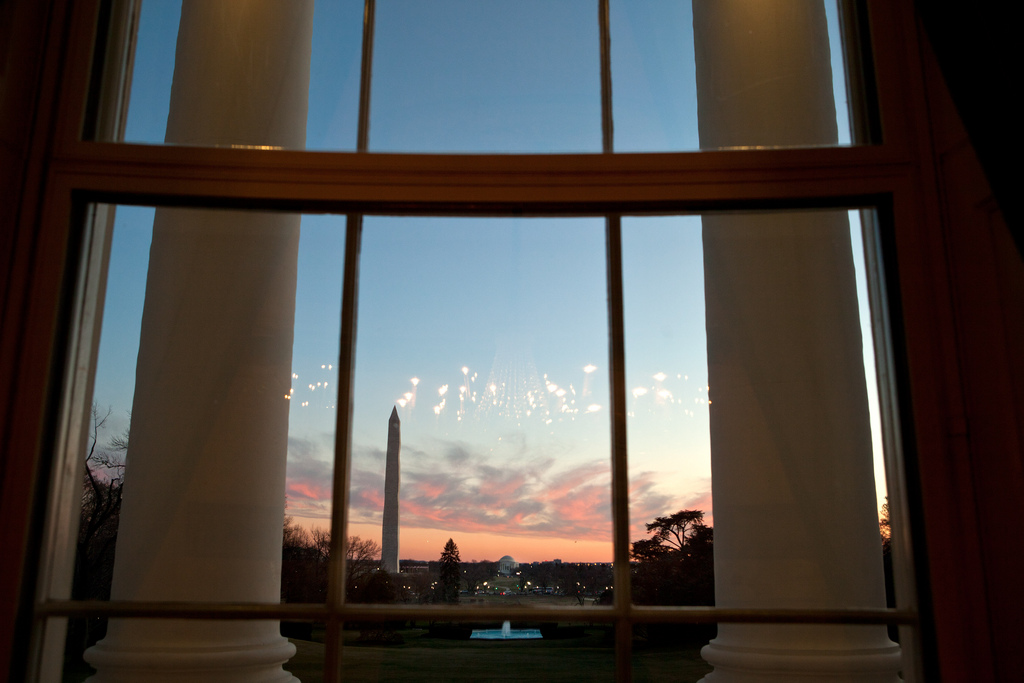By Deborah Avant for Denver Dialogues.
In this series we often focus on what academic studies can tell policy makers, but these days I find myself thinking more about what the policy environment should tell academics, particularly when it comes to their assumptions about American national interest and the public good.
Many who study security, particularly in the United States, assume that we can objectively know what US national interests are, and that protecting the national interest is beneficial to the US as a whole – the ultimate public good (this is the case whether one is arguing that US engagement or US retrenchment is the key to protecting those interests). In analyzing the impact of the Trump administration, scholars commonly impute a public benefit to protecting national interests, whether they are critical (arguing that the Trump administration should learn the lesson of the limits to military power, that his budget threatens US counter terrorism, or that his incompetence undermines US credibility) or more supportive (claiming that his military build-up promises to correct past failures) of current trends and policies. At a recent meeting focused on national security, I was struck by the certainty of those who discussed US national interests, and their assumption that protecting them would benefit “us” – especially given the contrast between that certainty, the divergent reactions to the periodic Trump tweets, and the uneasy break-time conversations about our fraught political environment.
Shortly after I was at a different meeting on peacebuilding. Here scholars spoke of the pursuit of “national interests” as something much more political and prone to undermine stability. Evoking national interest gave opportunistic leaders rhetorical fodder and resources to pursue strategies that would damage anything approximating the “public good”. Indeed, the peacebuilding literature councils that establishing peace requires taming the exclusionary efforts of national leaders. Protecting the peace also requires protecting people. And protecting people means understanding what makes individuals in particular communities feel threatened or secure – everyday peace indicators – rather than looking only at objective measures of national security such as military or economic capacities. The peacebuilding crowd was much more prone to critical reflection about not only national interests but also what “good” meant and whether it could be imputed to any particular “nation”, “community”, or “public”. Thinking back to the conversation about national security from this perspective made the equation of the “national interest” with the “public good” seem remarkably idealistic – ironic given the dominance of, as one participant put it, “card-carrying realists” in the national security discussion.
If anything was clear in the recent US presidential election, it was that Americans have very different visions about their country’s identity, let alone its interests. And the differences have only intensified since. Though Trump’s overall approval ratings are low by historical standards, what is striking is the difference between his approval by Democrats (8%), Independents (35%) and Republicans (87%). While some feel more secure given the immigration ban, others feel much less so. This is a reflection of the crisis of sovereignty that joins recent books by Rosa Brooks, Richard Haas, and David Kennedy. Without agreement on who we are, or what we care about, there is little in the way of common concern to inform either a national interest or a public good. And there is ample evidence that pro and anti-Trump forces are using the national interest for political purpose. Though Nathan Sears recommends that Trump should learn from Morgenthau’s political realism, the reality of the world (even setting aside yesterday’s revelations) appears to be telling security studies scholars to stop and think about whether their realist assumptions are, in fact, a bit idealistic.







2 comments
Great insights here. I have often wondered, if I got a bunch of US policy makers in a room and asked them list of what our “national interests” are, what they would come up with. (What ARE our national interests anyway??) I think what you’re describing as “objective measures of national security” are essentially state-based security–i.e., safety from being invaded(?) or being somehow subjugated by another country–and what you’re describing as “protecting people” and “everyday peace indicators” is human security. I think the world is shifting, gradually, from state-based to human security. This does perhaps weaken state sovereignty, but may strengthen popular sovereignty. Seems to me a welcome shift. How to overcome divisions within our country (and within others) on what our national identity and interests are, however, remains a big question.
Security as a national interest in the United States has very conflicting and more often than not contradictory definitions. While state-based security is the traditional marker among the list of national interests, it is certainly not the greatest threat to the country by a long shot. Neither terrorism, invasion by a foreign power, nor nuclear war are its primary threats. What is, in fact, the greatest threat is the erosion of American political and economic influence across the world which is hastened by the present political chaos, the rise of the East as emerging economic and military powers, and the instability of the shift. I look rather skeptically at statements to the contrary made by any policy maker or public official.
As Suzanne Ghais notes above, human security is and should be the primary focus for the world’s governments as there are obvious linkages between conflict, instability, and human security. Unfortunately, the current administration believes that dismantling or otherwise disrupting the liberal order will have little or no negative consequences insofar as it pertains to the national interest, which it cynically and erroneously asserts is transactional, zero-sum, and purely economic.